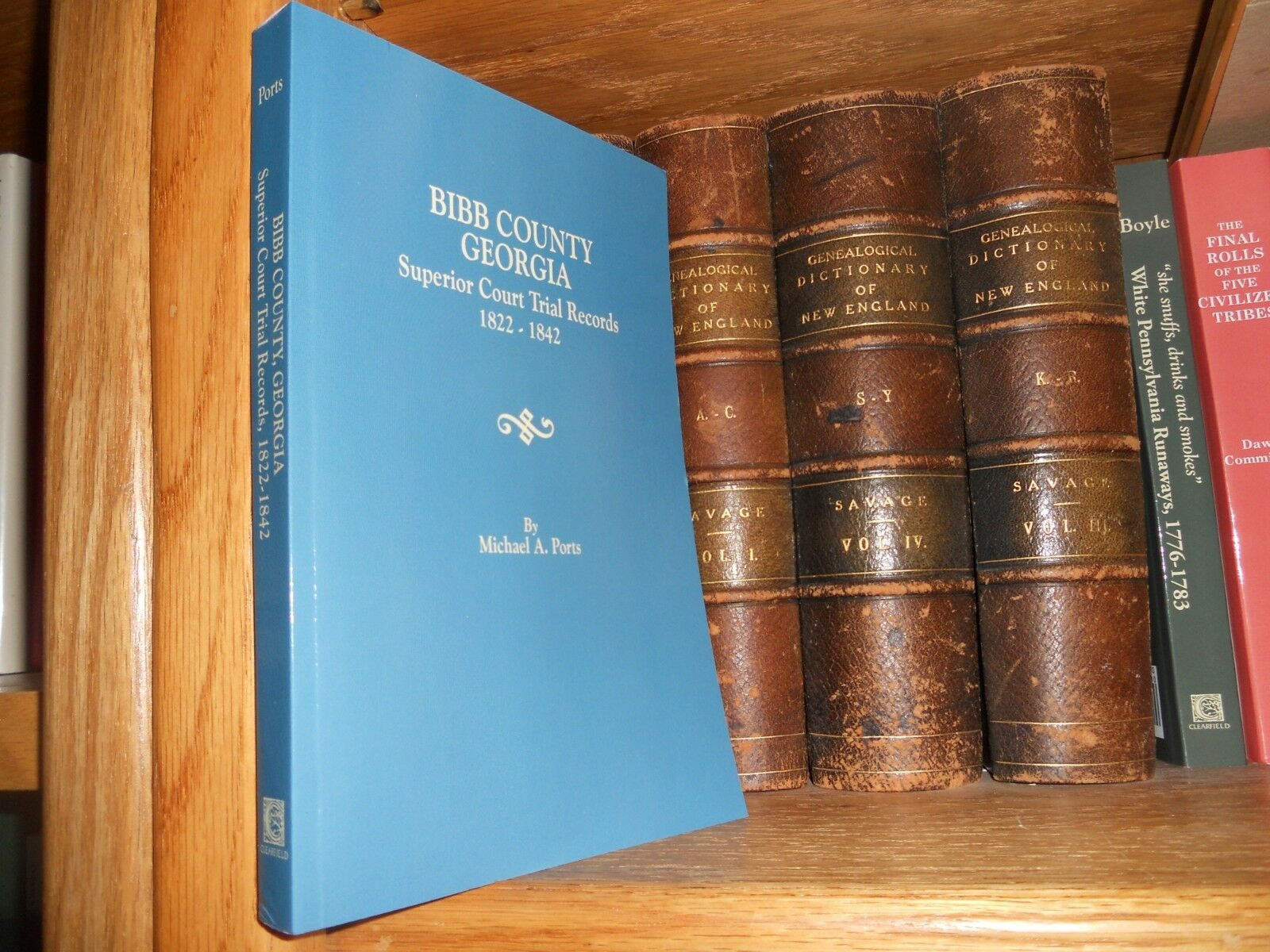-40%
Bibb County Georgia Superior Court Trial Records 1822-1842 New Genealogy book
$ 21.11
- Description
- Size Guide
Description
Bibb County, Georgia, Superior Court Trial RecordsMichael A. Ports
Softbound volume totaling
358
pages. Book is in new condition. Just what you need for genealogy research. Per the publisher;
The Georgia General Assembly created Bibb County on December 9, 1822, from parts of Jones, Monroe, and Twiggs counties, and established Macon as the county seat. It also added Bibb County--along with Crawford, Dekalb, and Pike counties--to the existing Flint (Superior) Judicial District. The Superior Court held jurisdiction over all criminal matters, most civil cases, appeals from the Inferior Court and Justices' Courts, divorces, grand juries, and the registration of land deeds.
The records in this book by Michael Ports are based upon an original Bibb County minute book for 1822-1842. Mr. Ports transcribed the contents from a microfilm copy photographed at the county courthouse in Macon, Georgia, on November 18, 1964, by the Genealogical Society of Salt Lake City, Utah, and the Georgia Department of Archives and History, in Morrow, Georgia.
While the original volume is labeled as court minutes, it contains only the records of criminal cases heard by the court. The cases appear in approximate chronological order, beginning with Case No 1 in the November Term 1822 and ending with Case No 1 in the November Term 1842. Each case entry provides the names of the defendants and the specific charges alleged. Following the case citations are the actual bills of indictment, which include the names of the grand jurors, the names and residences of the defendants, the specific charges alleged, and the dates the crimes were committed. The bills of indictment often, but not always, include descriptions of where and how the crime was committed, some even providing lurid descriptions of beatings, other assaults, and murders; detailed descriptions of articles stolen; and physical descriptions of any slaves involved in the incidents. Each bill of indictment ends with the date of the court term, the name of the grand jury foreman, and the name of the prosecutor (i.e., the individual who pressed the criminal charge, not the lawyer who prosecuted the case). On a case-by-case basis, the records may provide a list of witnesses, names of attorneys, nature of the defendant's plea, summaries of testimony, and more. Since most of the cases took place over two, three, or even more court terms, the careful researcher should consult the actual court minutes to determine when each step in the criminal court process took place.
Take a Look at My Other Genealogical Books up for Auction
Track Page Views With
Auctiva's FREE Counter









